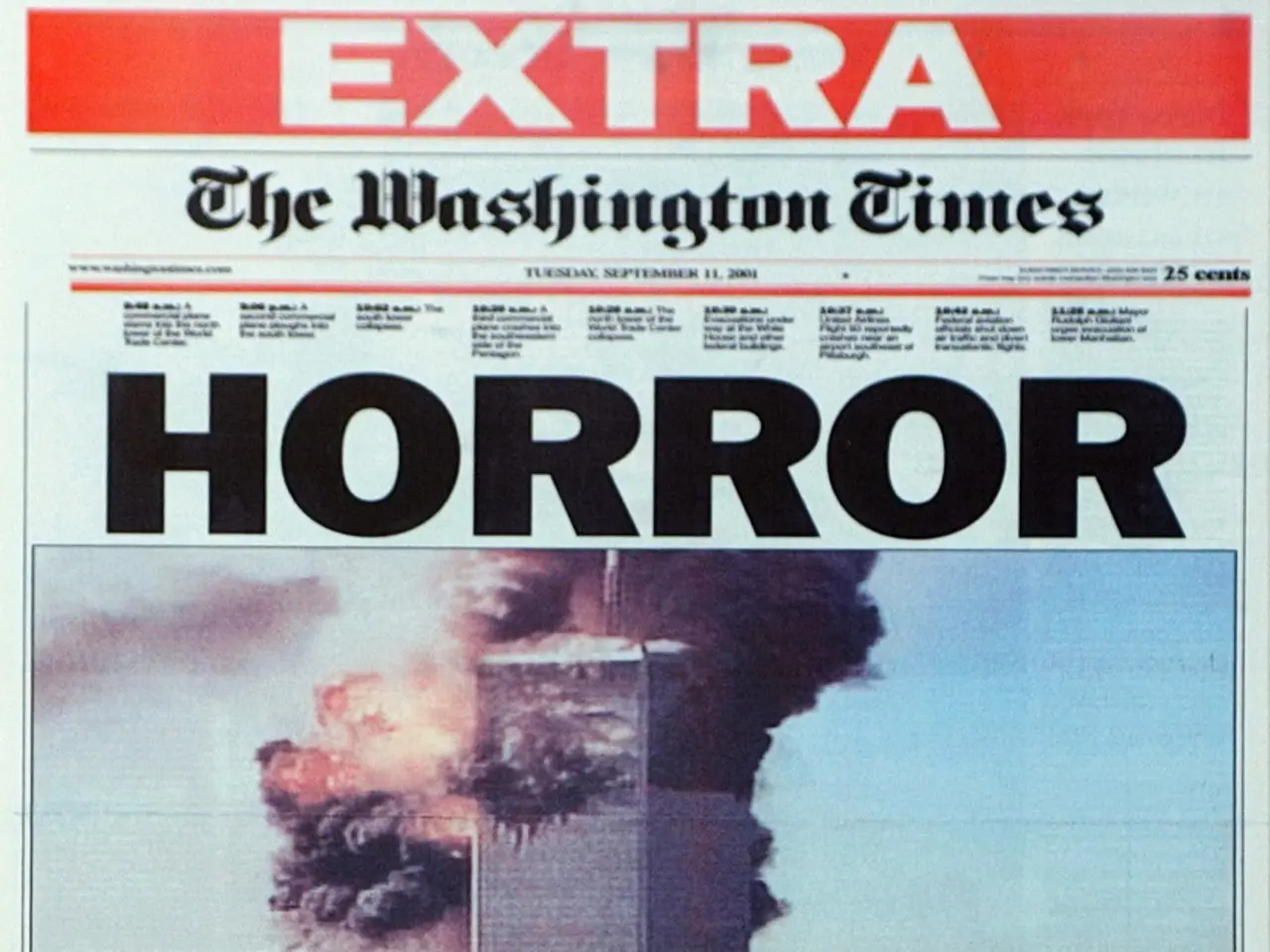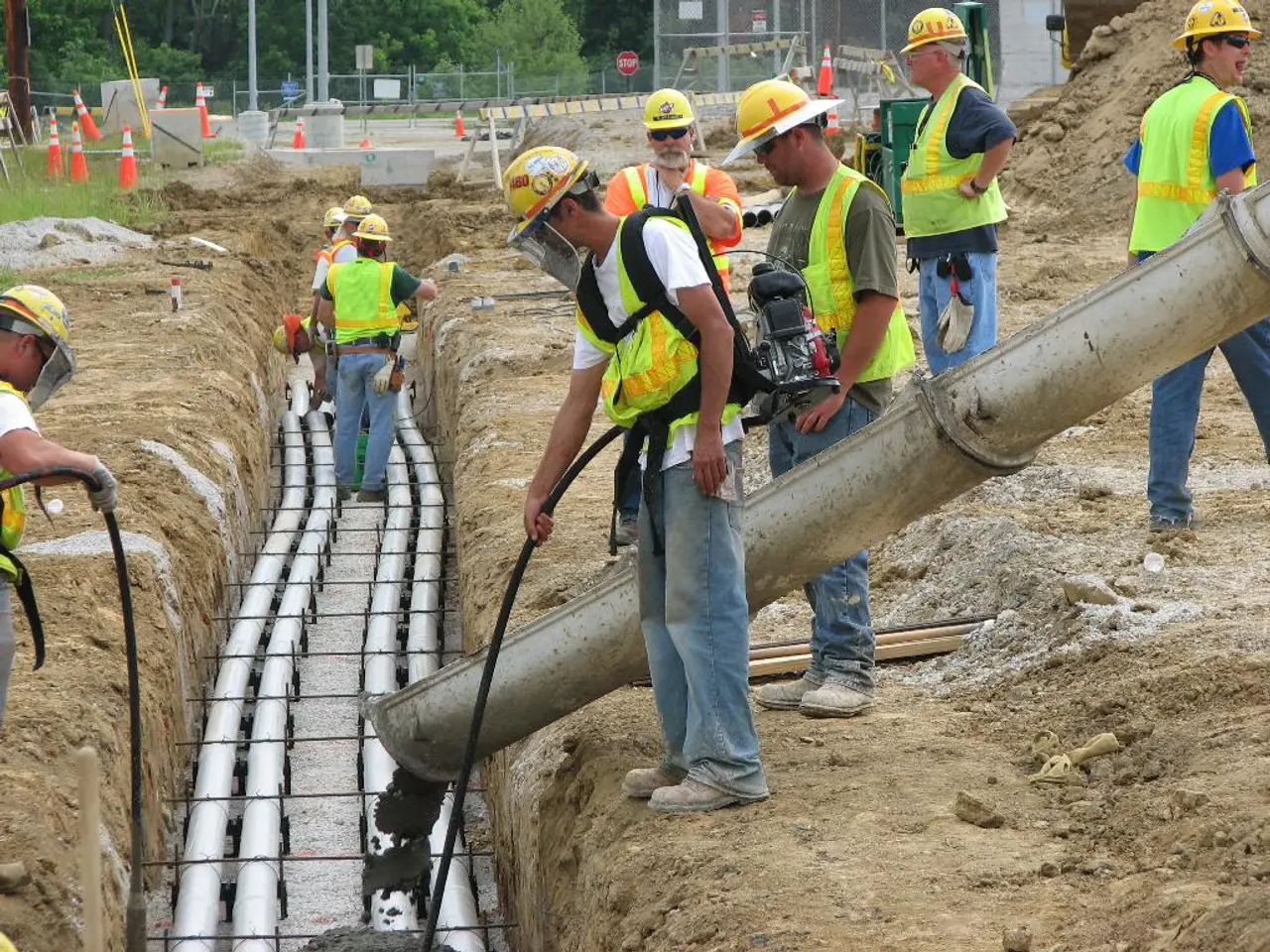Title: "Donald Trump Downplays European Involvement in Iran Conflict"
Europe lacks the ability to contribute significantly to the Iran conflict, according to Trump's assertion.
Kickstart the Read
In the heated standoff between Israel and Iran, U.S. President Donald Trump has voiced his skepticism towards Europe's mediation efforts. Trump believes Iran treats Europe as a mere spectator in the nuclear program’s diplomatic folly. The war's endgame might unfold sooner than two weeks, according to Trump.
Briefing
During a recent press conference, Trump stated, "Iran doesn't want to engage with Europe. They want to talk to us. Europe can't help." Though contacts between the U.S. and Iran are ongoing, the President remained tight-lipped about any forthcoming developments. Reports suggest that presidential envoy Steve Witkoff has been in touch with Tehran.
Political Chatter
Meanwhile, German Foreign Minister Johann Wadephul, French and British counterparts, and the EU's High Representative Kaja Kallas held discussions with Iranian Foreign Minister Abbas Araghtchi in Geneva. The primary objective was to discuss a possible negotiated resolution, specifically focusing on Iran's nuclear program. Wadephul expressed satisfaction post-meeting, stating that the Iranian side showed readiness to continue talks about all crucial matters.
Foreign Minister's Conundrum
Trump displayed little enthusiasm for the European-led initiative, expressing difficulty in seeking a ceasefire from Israel. Given the current circumstance, such a demand could be more feasible if one side wasn’t dominating the battlefield. Trump, who initially set a two-week deadline for diplomatic efforts, later indicated that this was the "maximum."
Two-Timing Tactics
Iranian Foreign Minister Araghtchi voiced his suspicion that the two-week deadline for diplomatic efforts might be a facade for a planned military attack. "They [the U.S.] must demonstrate a genuine intent to negotiate, or else, they have ulterior motives and want to attack Iran anyway," Araghtchi stated in an interview with NBC News. The interview occurred after Araghtchi's meeting with the Europeans.
Trump was also challenged about U.S. intelligence agencies' assessment that Iran is not currently building a nuclear weapon. Trump’s response: "If my intelligence agencies are wrong, then they're wrong." Tulsi Gabbard, a U.S. intelligence coordinator, had previously made a statement to the contrary in Congress. Iran maintains that its nuclear program is purely civilian in nature.
- Donald Trump
- Iran conflict
- Iran
- Iranian nuclear program
- Israel
Behind the Curtains
It is worth noting that the two-week deadline for diplomatic efforts might have served a strategic purpose rather than a concrete deadline. According to some information, the U.S. had indeed set a two-week deadline for Iran to negotiate, after which military action would be considered should talks falter. Despite the ongoing diplomatic efforts during this period, the Pentagon was concurrently readying for a strike. Eventually, U.S. officials came to believe that Iran would not negotiate constructively, setting the stage for military intervention[2].
On the Iranian side, Iran is portrayed as using negotiations and covert nuclear material storage to erect a significant dilemma for the U.S.—forcing Washington to either accept Iranian terms or engage in a prolonged search for hidden nuclear material. Iranian officials have remained resolute in their negotiation stance and have shown no signs of compromise, suggesting that deadlines or diplomatic timelines are part of a broader strategic game[1].
Araghtchi’s assertion that the two-week deadline is a ruse finds support under these circumstances. Both sides seem to be aware that such deadlines serve as political signaling or pressure tactics rather than absolute cutoffs. The deadline appears to have been part of a calculated strategy to influence perceptions and actions rather than a genuine, inflexible timeframe.
- Despite Donald Trump's skepticism towards Europe's mediation in the Iran conflict, European foreign ministers and the EU's High Representative met with Iranian officials to discuss a possible negotiated resolution, specifically focusing on Iran's nuclear program.
- The two-week deadline for diplomatic efforts set by Donald Trump in the Iran conflict might not have been a concrete deadline, but rather a strategic move to signal political intent or apply pressure, as both US and Iranian officials seem to recognize.








